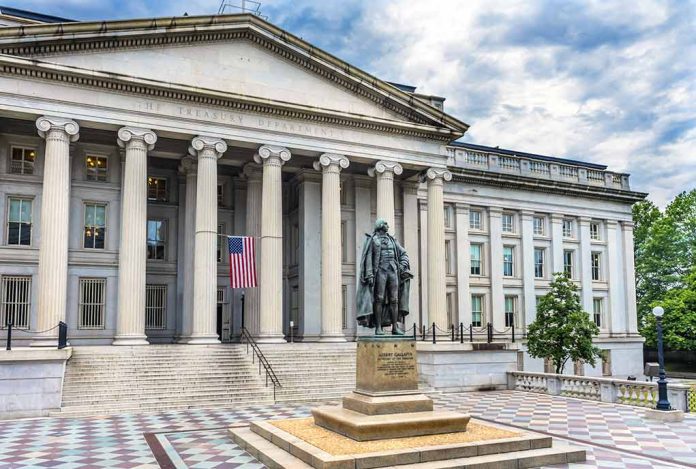
A federal judge has halted Elon Musk’s Department of Government Efficiency from accessing sensitive Treasury Department records, sparking a heated debate on privacy and government oversight.
Key Takeaways
- Federal judge blocks Musk’s DOGE from accessing Treasury Department’s sensitive data
- Lawsuit filed by 19 Democratic attorneys general alleges illegal access to central payment system
- DOGE’s potential access raised concerns about data security and unauthorized fund freezes
- Judge orders destruction of downloaded information and sets hearing for February 14
- Critics call it the “largest data breach in American history”
Judge Blocks Access to Sensitive Treasury Records
In a significant ruling, a federal judge has blocked Elon Musk’s Department of Government Efficiency (DOGE) from accessing sensitive records held by the Treasury Department. The injunction came following a lawsuit filed by 19 Democratic attorneys general against President Trump, alleging illegal access to the Treasury’s central payment system. This system manages crucial financial operations including tax refunds, Social Security, and veterans’ benefits, containing extensive personal and financial data of American citizens.
Judge Paul A. Engelmayer has not only blocked access but also ordered the destruction of any downloaded sensitive information. A hearing has been set for February 14 to further address the matter. The ruling underscores the delicate balance between government oversight and individual privacy rights, particularly in an era of increasing digitalization.
Huge blow to Elon Musk as a federal judge has blocked him and his team from accessing Treasury Department data.
This decision was made in response to a lawsuit filed by 19 Democratic state attorneys-general. The judge issued a temporary order restricting Musk's Department of… pic.twitter.com/tDiyS40PA9
— The Global 202 (@theglobal202) February 8, 2025
DOGE’s Mission and Controversy
DOGE was established with the stated purpose of identifying and eliminating wasteful government spending. However, its access to Treasury records has raised significant security concerns. Critics argue that such access could lead to an illegal freeze of federal funds and unauthorized blocking of essential payments, potentially affecting millions of Americans who rely on these services.
“This unelected group, led by the world’s richest man, is not authorized to have this information, and they explicitly sought this unauthorized access to illegally block payments that millions of Americans rely on, payments for health care, child care and other essential programs”, stated New York Attorney General Letitia James.
The lawsuit claims that DOGE’s access violates federal law, administrative law, and the U.S. Constitution’s separation of powers. Treasury Secretary Scott Bessent stands accused of altering policies to allow DOGE access to this sensitive information, further complicating the legal landscape surrounding this issue.
Reactions and Implications
The gravity of the situation has not been lost on state officials. Connecticut Attorney General William Tong didn’t mince words when describing the potential impact of DOGE’s access to Treasury records stating, “This is the largest data breach in American history.”
The Treasury Department, for its part, maintains that the review is solely to assess system integrity, with no changes being made. However, this assertion has done little to allay fears among privacy advocates and concerned lawmakers. Democratic lawmakers and advocacy groups are now seeking further investigation and legal action against DOGE’s access, highlighting the broader implications for data privacy and government transparency.
Sources:
Federal judge blocks Musk’s DOGE from accessing sensitive U.S. Treasury Department material







